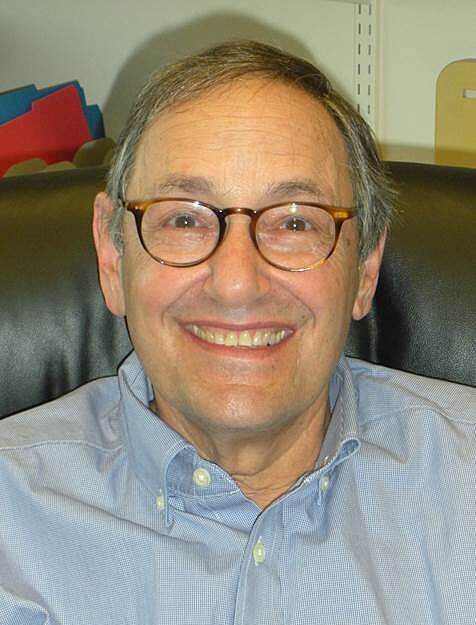Brain Awareness Week: Lecture honors UF Brain Institute founder, features glucose’s role in preventing memory loss

A sweet remedy could be just the thing to reduce memory loss in older adults. Glucose produced via a burst of hormones after an exciting or emotional experience could help us better remember what we need to, and lead to new therapies to prevent memory loss, according to research being presented next week at the University of Florida.
“The issue is, why do we remember important things better than we remember trivial things,” said Paul E. Gold, Ph.D., a distinguished professor of biology at Syracuse University, who on March 14 will deliver the inaugural Luttge Lecture in honor of William G. “Bill” Luttge, the late founder of the McKnight Brain Institute of UF, who established one of the nation’s first neuroscience programs at the university. Luttge died last March.
Gold’s lecture, titled “Making Memories Metabolic and Making Metabolic Memories” also is the keynote address for UF’s Brain Awareness Week program, part of a global observance of the importance and impact of brain research.
In the 1970s, Gold and Luttge both worked on hormonal control of brain function at the University of California, Irvine, which was emerging as a mecca for neuroscience research, particularly in the area of learning and memory. As such, Gold’s lecture is a fitting start for the annual Luttge Lecture series, Brain Institute leaders said.
“I think it’s great that we can start off with Paul Gold — his work links hormones, which were Luttge’s area of research, with learning and memory, a major focus of the UF McKnight Brain Institute that Bill was so instrumental in founding,” said Tom Foster, Ph.D., the McKnight Research Chair for age-related memory loss at the Brain Institute and a professor in the UF College of Medicine. “In addition, Paul contributed to the history of excellent research that came out of Irvine and has gone on to distinguish himself for work examining how hormones modify memory function.”
Gold’s seminal work in the 1970s showed that hormonal responses to events strengthened later memory of those events. Over the years he has kept the theme of trying to understand how memories are solidified. Those studies looked at the influence of processes such as the release of hormones and the cascade of biological events that follow.
The reasoning behind the research starts with the fact that different levels of emotional arousal lead to the release of different levels of hormones, particularly adrenaline, into the blood. Adrenaline, in turn, triggers the release of glucose, which gives the brain the energy jolt needed to feed memory-formation processes.
In laboratory experiments, rats showed improved memory for an unexciting experience if they received an injection with amounts of hormones or glucose that a more hair-raising experience would have triggered. In a way, it’s like simply walking down a flight of stairs but getting the adrenaline rush of base jumping off the Empire State building.
The same types of hormone infusions give older animals a boost that puts their memory on par with that of their younger counterparts. In corresponding clinical studies, 70-year-olds given glucose-sweetened lemonade also did as well as young adults in memory tests.
Gold and colleagues also found that the brain areas important for memory used up more glucose in older animals than in younger ones.
“It’s as if the brains are being starved for energy,” Gold said.
Now Gold and his team are trying to understand what processes link glucose levels in the brain to memory. They found that cells called astrocytes store the glucose-containing molecule glycogen, which can be broken down on demand to provide energy for nerve cells. Interestingly, the distribution of those energy stores varied in different parts of the brain based on experiences that rats had in the relatively distant past. These persistent experience-related differences in energy reservoirs represent a kind of memory at the biochemical level, Gold said.
So is improving memory in the elderly just a matter of drinking glucose-sweetened lemonade?
“It may not be a bad idea,” Gold joked ― but not just yet. “I often say glucose is not ready for prime time.”
First, researchers need to figure out appropriate dosages for glucose. That gets complicated, because above a certain level, glucose impairs memory, and on top of that, people’s bodies don’t all respond in the same way to the sugar.
“So for one person, the optimal dose will be different from that for another person, and we don’t know how to differentiate,” Gold said. “But then it gets worse …”
It’s hard to standardize dosages because a person’s blood glucose levels can spike for a variety of reasons, including stress and arousal. Levels also will vary based on what a person eats in the hours before taking glucose. Still, those issues could be overridden by understanding how glucose enhances brain processes used to make memories, Gold said.
Once researchers figure out the biology of it all, it could be possible to develop a treatment that targets brain regions and processes involved in glucose-related memory improvement.
“I’ve gone from pessimist to optimist as the field has progressed,” Gold said. “I do think that there will be treatments that can ameliorate age-related memory loss in 10 years.”